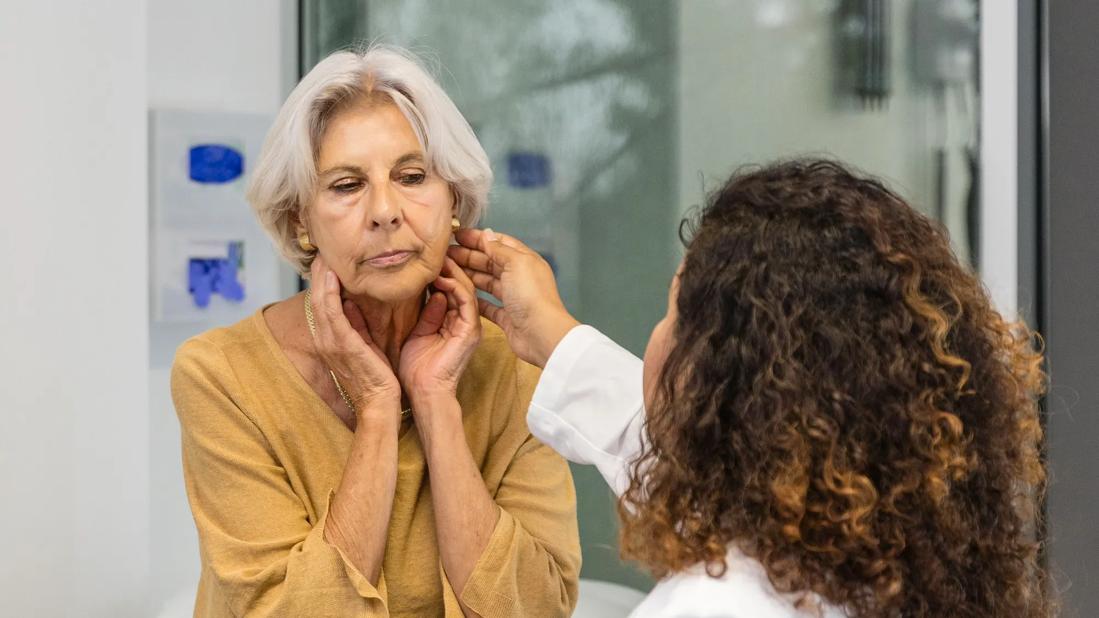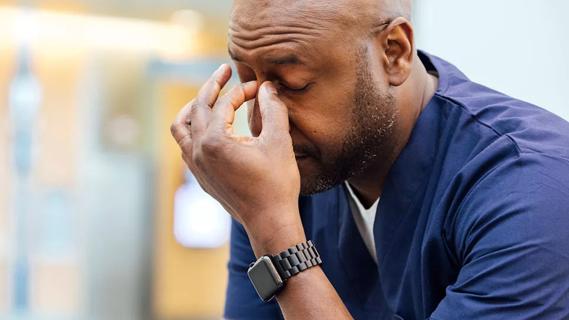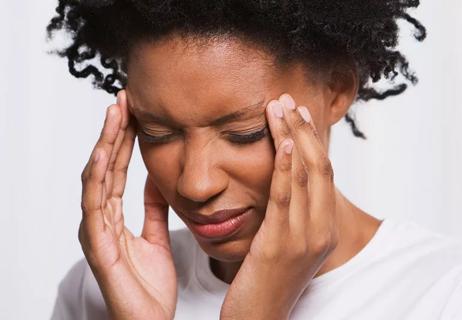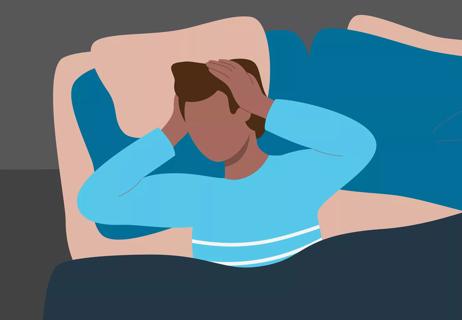TMJ pain can cause headaches, but chiropractic treatments, lifestyle adjustments and medication can help ease discomfort

When dealing with headache pain, you might assume the source of that skull-pounding ache comes from the top or side of your head. But the trouble may actually start in your jaw.
Advertisement
Cleveland Clinic is a non-profit academic medical center. Advertising on our site helps support our mission. We do not endorse non-Cleveland Clinic products or services. Policy
Jaw-dropping news, we know, but it makes a lot of sense.
Your temporomandibular joint (TMJ) is the “hinge” connecting your jaw and skull that allows you to talk, chew and yawn. The muscles powering this joint are constantly working throughout the day.
When those muscles get overworked, their displeasure can lead to headaches, says chiropractor Andrew Bang, DC.
We asked Dr. Bang to explain the connection and, better yet, how you can make the pain go away.
Your jaw muscles tighten when you grind your teeth, clench your jaw or do things like chew gum. Any pain in your jaw created by this movement can travel to other places in your skull, causing headaches.
TMJ pain can lead to:
Signs of a TMJ-induced headache can include:
The duration and severity of these symptoms can vary depending on the situation.
Advertisement
For example, stress or fatigue in your TMJ may result in a short flare-up. In these cases, symptoms often can be managed independently with time and patience. They’re usually not a sign of a larger or longer-term issue.
But TMJ dysfunction or teeth grinding (bruxism) can lead to headaches that last several days. They can keep recurring, too, if the underlying issue isn’t addressed. In these cases, you should talk to a healthcare provider to figure out if you have a TMJ disorder.
Anything that strains your TMJ or aggravates the surrounding muscles can kickstart a TMJ-related headache. Common triggers include:
Different approaches may help you find relief from TMJ-related headaches. Here are a few ways to try making the pain go away.
Our jaw gets a lot of use, so it can be hard to pinpoint what to do differently to put less stress on TMJ muscles. Dr. Bang offers these suggestions if your jaw is feeling extra sensitive and causing headaches.
Gentle stretches or jaw-strengthening exercises can improve TMJ mobility and reduce muscle tension. They may also slow the progression of a headache.
If you’re unsure where to start, a healthcare professional like a chiropractor, physical therapist or TMJ specialist can help you find the right stretch or exercise for relieving tight jaw muscles, says Dr. Bang.
Here’s one stretch you can try to relax your jaw:
Trigger point massage may help loosen jaw muscles that feel tight or knotted. Using a finger, gently massage any jaw areas that feel tense or tender by applying soft pressure for about 10 seconds.
If headaches continue, Dr. Bang recommends seeing a physical therapist or chiropractor for a massage session. They may be able to pinpoint other areas of your body — like your neck and shoulders — that could be affecting your TMJ muscles and causing headaches.
Osteopathic manipulation may also be an option to consider.
TMJ headaches can be stubborn in some cases. If you’re not finding relief, don’t grit your teeth to fight through the pain, urges Dr. Bang. A healthcare provider may be able to suggest treatments to help manage symptoms.
Advertisement
Some may be simple at-home remedies, like:
Healthcare providers may also suggest:
If you’re noticing jaw pain along with frequent headaches, don’t assume they’re unrelated. Issues with your TMJ muscles may be the drumbeat behind that pounding in your head.
Making a few simple adjustments to daily habits might be enough to solve your problem, reiterates Dr. Bang. If those changes don’t bring relief, contact a healthcare provider for more treatment options.
Advertisement

Sign up for our Health Essentials emails for expert guidance on nutrition, fitness, sleep, skin care and more.
Learn more about our editorial process.
Advertisement

Exercising, hydrating and other natural remedies can help a headache without the meds

Certain components found in wine like tannins and histamines may be the culprit

Dehydration, spinal fluid leaks and other conditions can cause positional headaches when you stand up

It’s all about the amount — try to stick to 100 to 150 milligrams a day to reduce and prevent a pounding, throbbing head

Many factors, like dehydration, a cold or even your medication, can result in these common symptoms

Behind your eye, on one side of your face or as a band around your head — headaches are no fun

Yes, especially if you get migraines — but medicine can help

If it isn’t a hangover or teeth grinding, your aching head might be a sign of a sleep disorder

Even small moments of time outdoors can help reduce stress, boost mood and restore a sense of calm

A correct prescription helps your eyes see clearly — but as natural changes occur, you may need stronger or different eyeglasses

Both are medical emergencies, but they are very distinct events with different causes